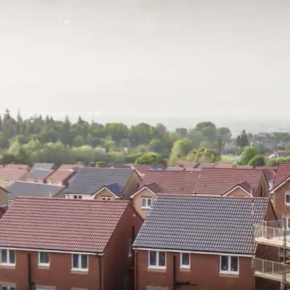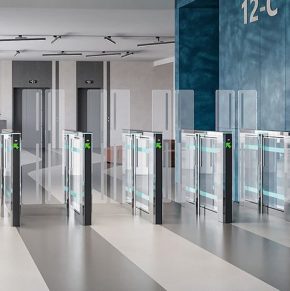
VIDEO: Transforming Construction – Building Innovation
This article stresses the need for us to get more from our built environment, meaning we need to make our buildings safer, more affordable and energy efficient.
It explains that, currently, our homes and places of work do not meet current demands and needs but things are changing – and changing for the better, as a closer look at transforming construction is taken…
To view a short video around the subject, click here
What Issues are We Currently Facing?
Most of our homes were built in the 1980s, using now-outdated methods and techniques. This poses many problems today, as our buildings no longer sufficiently meet our needs.
One key area is climate change. Domestic heating accounts for 40% of our energy use and carbon emissions. Due to the out-of-date construction methods, our homes fail to retain heat sufficiently.
This not only makes our homes more expensive to run, but also contributes hugely to our carbon footprint.
However, it’s not just old methods that are to blame.
It would surprise many to discover the way we currently construct some of our homes and buildings.
There are too many prototypes, with a high volume of projects abandoned and never completed. If completed, the finished building often looks nothing like the original design.
What are the Reasons Behind the Problems?
So, where do the issues within construction stem from?
Overall, there can be a lack of efficiency, causing the sector to run slowly in general. One reason for this is that construction is labour intensive. But, it’s largely down to our current methods.
Lack of Collaboration
Collaboration in the construction industry is key to propelling it forwards. It can provide access to new technologies, or bring likeminded businesses together to find new and innovative solutions.
However, we’re currently not utilising this to its full potential.
Lack of Strategic Thinking
We need to look at the bigger picture to help build healthier, happier places to live and work.
– How will people experience their built environment?
– What do people want from it?
– How can we make homes inexpensive to run?
Lack of Funding
In some areas, construction has simply been neglected. Lack of funding means the industry can’t get where it needs to be.
How Serious are these Issues?
We need to act fast.
Under the climate change act, the UK has an obligation to cut its carbon emissions by 80% by 2050. Changing construction methods is one way to help meet this target.
As well as this, the government predicts England will need 210,000 more houses per year between 2014 and 2039. Currently, we’re nowhere near meeting this volume.
Finding the Solution
Where there’s a problem, there’s a solution.
Despite facing issues – we’re already taking the right steps to changing them.
For example, the New Active Building Centre is proving how buildings can be their own powerhouses, generating power through sustainable means. The research centre is paving the way for others to follow in its footsteps, reshaping construction as we know it.
It’s a live demonstration of how we can all live more sustainably, and how our homes can help us do it.
A greener, cleaner future is in our reach – with the construction industry building a better future for everyone.
The Call for Innovation
To transform the construction industry for the better, we need to enable it to produce safe and efficient buildings using the latest techniques.
A new government investment aims to do exactly that – using innovators to pave the way forwards.
It will support the industry in adopting technologies, helping buildings to be constructed 50% faster, 33% cheaper and with half the lifetime carbon emissions.
Innovation is directly addressing the problems the sector is currently facing.
As a result, the future of UK construction holds efficient buildings, increased productivity and new global market opportunities opening up.
Latest news

15th April 2025
West Fraser: CaberDek earns top marks from Home Counties carpentry specialist
A specialist carpentry sub-contractor covering housing sites across a large swathe of the Home Counties has come to value CaberDek from the West Fraser range for a variety of reasons: not least because the high quality panel product doesn’t destroy his operatives’ electric saws!
Posted in Articles, Building Industry News, Building Products & Structures, Building Systems, Case Studies, Restoration & Refurbishment, Retrofit & Renovation, Roofs, Timber Buildings and Timber Products, Wooden products
15th April 2025
GEZE: The Role of Access Control Systems in Enhancing Building Safety
Jane Elvins, Specification and Business Development Manager at GEZE UK, delves into the role of access control systems in enhancing building safety…
Posted in Access Control & Door Entry Systems, Architectural Ironmongery, Articles, Building Industry News, Building Products & Structures, Building Services, Doors, Facility Management & Building Services, Health & Safety, Restoration & Refurbishment, Retrofit & Renovation, Security and Fire Protection
11th April 2025
Don’t Do a Dave! It’s Time to Lock FIT Show 2025 in Your Calendar!
It’s that time again – FIT Show is back! You could be forgiven for thinking there won’t be much new to see when FIT Show returns to the NEC from 29 April – 1 May. Wrong!
Posted in Articles, Building Industry Events, Building Industry News, Building Products & Structures, Building Services, Continuing Professional Development (CPD's), Exhibitions and Conferences, Information Technology, Innovations & New Products, Restoration & Refurbishment, Retrofit & Renovation, Seminars, Training
11th April 2025
Insight Data: Boost construction success with project and prospect data
For those working in construction – in whatever capacity – the last few years haven’t been much fun. And according to the latest statistics, it would seem the challenges are continuing – Alex Tremlett, Insight Data’s Commercial Director, has more…
Posted in Articles, Building Industry News, Building Services, Information Technology, news, Research & Materials Testing
 Sign up:
Sign up: